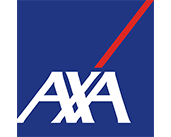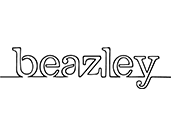New Business Start-Ups - How to Guide. Part 2
The new year is here and this is the time when many of us think about starting our own businesses and becoming the boss... Start-ups can range from sole traders, limited companies, non-profit Charites or indeed invested companies, so their needs are often VERY different, some will employ people, some will not, some will work from home, some will work from offices, some from different sites and venues.
So where to start when setting up your business?
There are some common areas that all new businesses will need at some point no matter what type of structure they decide to begin with. So here is a list that maybe helpful, compiled not necessarily in order.
- An Accountant
- A bank account /bank
- An insurance adviser/broker
- A name
- An identity (logo design)
- A business plan
- Website/domain name
- Email/ address and telephone contacts
- Business cards, headed paper
- Relative equipment you may need to operate
- Intellectual Property office... For registering patents, trademarks, copyrights
- The ICO Information Commissioners office (If you hold or intend to hold client information you need to register with them)
Who does what and why?
An accountant is a good place to start they will be able to advise you on what type of structure to set your new business up in, whether to register for VAT, apply to Companies house to become a limited company (and explain why this could be the best for your business) or if you would will be better of trading as a sole trader or partnership. An initial meeting should be FREE of charge so visit a few accountants explaining your business and what income you are expecting to bring in for your first year of trading.
It is important that you get on with your accountant and feel comfortable with them as they are will be looking after your business accounts each year. Naturally you will also need to get an indication of their fees so don’t be afraid to ask.
Opening up a bank account you may well say if I already have a bank account why don’t I just use that, as a sole trader you may get away with that for a little while but it certainly wouldn’t work for a limited company status and would be bad practice even as a sole trader not to separate your business activities from your private bank account.
Again most banks are happy for FREE to sit down with you and discuss your business requirements and the different accounts that they can offer you including different currency arrangements if required , you may well need to visit a few banks to get the best deals, charges , possible loans/overdraft facilities etc .We would advise that where possible keep your private bank accounts in a different bank to your business bank account . Also, when making an appointment go in prepared with a reasonable business plan and some estimates of income and out going for at least the first year of trading if not more… there is plenty of FREE advice you can get from the internet about how to formulate a business plan and this will help both the bank and your accountants to take you seriously when approaching them.
Why do I need an insurance broker well if you want to protect both your personal wealth and the business as it starts and grows this is going to be an area that you will need to focus on irrespective of how the business is set up there are standard covers you will need based on the following:
1) Public Liability / Contractors All Risk Insurance
This insurance covers you for the cost of a claim made by a client or a member of the public that has suffered injury or property damage as a result of your business or a product it has supplied.
2) Employers Liability Insurance
This is a legal requirement and brings substantial fines if you do not have a policy in place. (If you employ anyone even on a part time basis).
3) Office / Building Insurance / Business Interruption
Office insurance is a package that has been designed to meet the needs of all types of office based businesses. It includes contents building cover, revenue protection, public liability, employers liability cover, cyber insurance and commercial legal protection etc.
4) Directors and Officers Insurance
Which will protect directors and officers of the company in the event that claims against individual directors like sexual harassment, racial, age, and disabled discrimination, employment disputes, unfair dismissal, companies act rules, GDPR etc this cover will be particularly useful for limited companies, PLC`s, non-profit organisation, and start-ups who obtain investment funding.
5) Cyber Insurance
With nearly 50% of companies experiencing some form of Cyber-attack which can cripple a business this insurance has to be a priority purchase.
6) Professional Indemnity Insurance
If you are offering any form of advice to your clients, you will need to protect your business against claims for professional neglect, errors and omissions.
7) Health Insurance
For the self-employed you would need to consider what happens if you are sick or have an accident that keeps you off work for a long period personal accident and sickness policies or permanent health insurance.
8) Life insurance / Keypersons Insurance
In the event of death these policies would help to look after a family or business by providing a lump sum should the key person die.
9) Intellectual Property Insurance
This insurance coverage protects companies for copyright, trademark or patent infringement claims arising out of the company's operation. It pays the defence costs and any judgement up to the policy limits.
These are a few of the policies you would need to consider when opening up your business and with a subject matter so wide it is best to obtain advice from a registered (FCA) Financial Conduct Authority broker who will talk you through all the policies that they think would apply to your business and explain why again this service is normally free of charge.
Legal requirement you can appoint a solicitor to look at the company structure and provide you with necessary terms of business agreements that you need to provide your clients with and they will be able to advise you on company regulations (GDPR) General Data Protection Regulation, and your responsibilities. Although for a start-up unless being funded or invested in this could be costly.
Having spoken to the Bank, Accountant, and Insurance Adviser and if say you are a sole trader working from home you probably don’t need to obtain legal advice to start trading but you must be aware of new regulations which you can research online for example GDPR/ICO came into force last year and it does affect the way we approach other companies and people when we market to them… and naturally as a new business we assume you will be sending out marketing to attract clients to you... We would of course always point out that if you are in doubt at all about the laws and regulations that may apply you should always seek legal advice particularly if you are being asked to sign lease agreement for renting properties or business contracts.
Now onto the exciting part choosing your name, logo, building your website, getting your business cards and headed paper designed, there are still some rules here of course like you cannot choose a name already being traded in, you must not copy or have a logo that look like another businesses logo, you must make sure you have the appropriate warnings and declarations on your website, you will need to get your website hosted and obtain your e-mail addresses where necessary protect your own trademark and copyrights.
This might seem all very daunting now but it will be worth it in the end just look at it as the first learning curve of running your business and that you will be controlling your own destiny... you will work harder than you ever have but the difference is it’s your business and you can wake up in the morning knowing you have the choice!! Some organisations and regulators that can give you advice and independent overview about some of the above FCA (Financial Conduct Authority), ICO (Information Commissioner`s Office), ICA (Institute of Chartered Accountants), The Law society IPO (Intellectual Property Office).
Good Luck and do feel free to contact us
< Back






